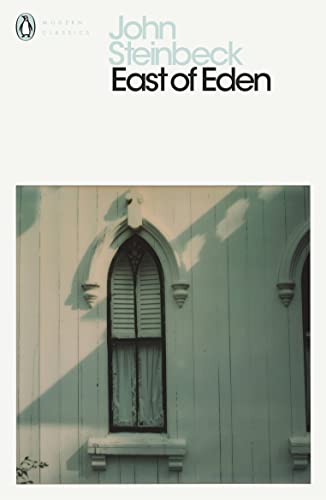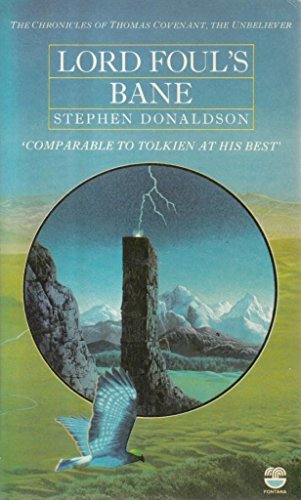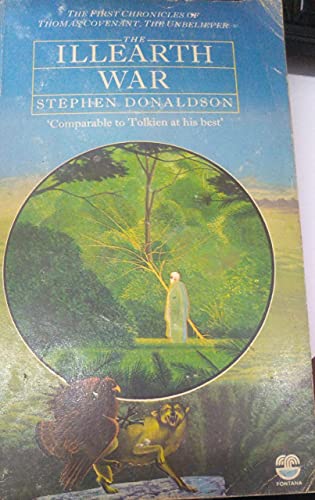East of Eden – Summary
East of Eden is a multi-generational saga set primarily in California’s Salinas Valley, spanning from the American Civil War to World War I. The novel intertwines the stories of two families: the Hamiltons and the Trasks. At its core, the narrative draws inspiration from the biblical tale of Cain and Abel, exploring themes of good and evil, free will and the complexity of human nature.
The story begins with Adam Trask and his brother Charles, whose relationship is marred by rivalry and jealousy. Adam marries Cathy Ames, a manipulative and evil woman who abandons him shortly after giving birth to their twin sons, Cal and Aron. Adam, devastated, moves to the Salinas Valley with his sons and his loyal Chinese-American servant, Lee.
As the twins grow up, they develop distinct personalities. Aron is idealistic and naïve, while Cal is more pragmatic and struggles with his inner demons. The brothers compete for their father’s affection, mirroring the biblical story of Cain and Abel. Meanwhile, Adam befriends Samuel Hamilton, a wise and inventive neighbour whose family becomes intertwined with the Trasks.
The novel explores the characters’ struggles with their identities, relationships and moral choices. Cal, in particular, grapples with the fear that he has inherited his mother’s wickedness. Lee introduces the concept of ‘timshel’ – the Hebrew word meaning ‘thou mayest’ – which becomes central to the theme of free will and personal responsibility.
As World War I looms, tensions between Cal and Aron reach a breaking point. Cal, feeling rejected by his father, reveals the truth about their mother to Aron, who enlists in the army in shock. Aron’s subsequent death in the war and Adam’s stroke bring the story to its climax, with Cal seeking forgiveness and redemption.
The novel concludes with Adam’s blessing to Cal, uttering ‘timshel’, affirming the power of choice and the potential for redemption.
Key themes:
- Good vs Evil
- Free will and personal responsibility
- Family dynamics and sibling rivalry
- The impact of parental love and rejection
- The cyclical nature of history
- The power of choice and redemption
- The complexity of human nature
Character Details
Adam Trask
Adam is the central patriarch of the Trask family. A kind-hearted and naïve man, he struggles with the trauma of his loveless upbringing and his disastrous marriage to Cathy. Adam’s inability to see people for who they truly are, especially Cathy, leads to much of the novel’s conflict. His favouritism towards Aron over Cal mirrors the biblical story of Cain and Abel. Despite his flaws, Adam’s journey towards understanding and forgiveness forms a crucial part of the novel’s exploration of redemption and free will.
Cathy Ames (Kate)
Cathy is portrayed as evil incarnate, a woman seemingly born without a conscience. Manipulative, cunning and entirely self-serving, she leaves a trail of destruction in her wake. After abandoning her new-born twins and shooting Adam, she becomes a prostitute and later the madam of a brothel. Cathy’s character serves as a stark contrast to the other characters’ struggles with morality, embodying the novel’s exploration of inherent evil.
Charles Trask
Charles is Adam’s half-brother, characterised by his quick temper and jealousy. His relationship with Adam is marked by a mixture of love and resentment, particularly due to their father’s perceived favouritism towards Adam. Charles’ character parallels that of Cal in the next generation, struggling with feelings of rejection and the fear of inherent evil.
Cal Trask
Cal is one of Adam and Cathy’s twin sons. Intelligent and intuitive, he struggles with his belief that he has inherited his mother’s wickedness. Cal’s internal conflict between good and evil drives much of the novel’s latter half. His journey towards self-acceptance and his desire for his father’s love form a central part of the story’s exploration of free will and redemption.
Aron Trask
Aron is Cal’s twin brother, portrayed as idealistic, naïve, and somewhat self-righteous. He is Adam’s favourite son, mirroring Abel in the biblical story. Aron’s inability to face the harsh realities of life, particularly the truth about his mother, leads to his tragic end when he enlists in the army and is killed in World War I.
Samuel Hamilton
Samuel is a wise, inventive, and charismatic Irish immigrant who befriends Adam Trask. As the patriarch of the Hamilton family, he serves as a moral compass and source of wisdom throughout the novel. His philosophical discussions with Adam and Lee provide much of the book’s thematic depth.
Lee
Lee is the Trasks’ loyal Chinese-American servant and a pivotal character in the novel. Highly educated and philosophical, Lee raises the Trask twins and serves as a voice of reason and wisdom. His exploration of the concept of ‘timshel’ provides the moral centre of the novel, emphasising the power of choice in determining one’s path in life.
Reader Fit
East of Eden would appeal to readers who enjoy epic, multi-generational family sagas with deep philosophical underpinnings. Those interested in exploring themes of morality, free will and the complexities of human nature will find the novel particularly engaging. Fans of classic American literature and those who appreciate rich character development and vivid, descriptive prose will also be drawn to Steinbeck’s masterful storytelling.
The book’s exploration of universal themes makes it relevant to readers of all ages, though its complex narrative and mature themes make it more suitable for adult readers or advanced young adults.
CEFR Classification and Learning Suitability
Estimated CEFR Level: C1 (Advanced)
East of Eden is a complex and richly detailed novel that requires advanced English proficiency to fully engage with its themes and narrative style.
- Vocabulary: The novel features a wide range of vocabulary, including descriptive, literary and occasionally regional terms that contribute to the setting and character development.
- Grammar and Structure: Sentences vary from straightforward to complex, with detailed descriptions and intricate narrative shifts that demand careful reading.
- Themes: The book explores themes of good and evil, family dynamics and identity, conveyed through a multi-layered and symbolic narrative.
- Dialogue and Style: Dialogue includes naturalistic and sometimes archaic speech, reflecting characters’ backgrounds and the historical setting. The prose is immersive and detailed.
Recommendation:
This book is recommended for advanced learners who enjoy deep, thought-provoking literature and are comfortable with complex language and themes.
Quick Facts
- Genre: Literary Fiction, Family Saga
- Publication Year: 1952
- Reading Time Estimate: 20-25 hours (based on average reading speed)
- Notable Awards: None specifically for East of Eden, but John Steinbeck was awarded the Nobel Prize in Literature in 1962, partly for this work.
Related Books
- “The Grapes of Wrath” by John Steinbeck
- “One Hundred Years of Solitude” by Gabriel García Márquez
- “Middlesex” by Jeffrey Eugenides
Buy the Book
Dive into John Steinbeck’s masterpiece and explore the timeless struggle between good and evil. East of Eden offers a profound meditation on the human condition that will stay with you long after you’ve turned the final page. Don’t miss this opportunity to experience one of the greatest works of American literature.
Get your copy today and begin your journey through the Salinas Valley!


